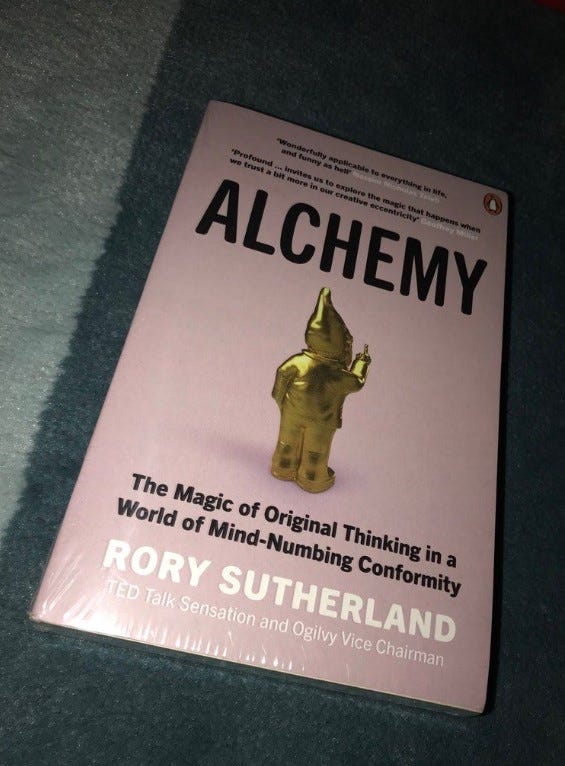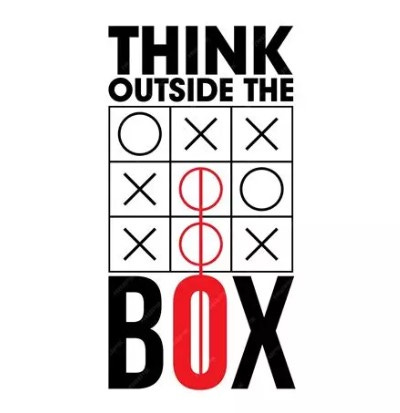Aligning Culture with Strategy: why Culture fit, adaptability, and diversity matter...
To unlock your B2B Sales potential
Culture. It’s one of those intangible elements that’s easy to sense but hard to define, let alone measure. (For more: Navigating the tension between Culture and Strategy in Sales organizations). If you’ve ever worked in a high-performing sales team, you’ve felt it: the shared energy, the unspoken ways of collaborating, and the "vibe" that keeps everyone moving toward the same goal. But how do you measure Culture? And more importantly, how does it impact your success as a sales professional?
A recent article by researchers in organizational culture (The New Analytics of Culture, Harvard Business Review) reveals groundbreaking findings about how culture shapes employee performance - and how those findings might be particularly relevant for sales teams. The article discusses how cultural fit, adaptability, and diversity - three concepts that may seem abstract - actually have very tangible effects on individual and team success.
Let’s dig in.
Culture Fit vs. Culture Adaptability: what’s more important for success?
As a Salesperson, you know the importance of fitting in with your team, company approach, and values. As a manager, cultural fit is often what we look for when hiring- people who align with the company’s mission, work style, and overall environment. This is what Rory Sutherland in his book Alchemy would refer as “hiring potatoes*”. But what if adaptability to a culture over time were just as, if not more, important than fitting in from the start?
Research shows that while cultural fit initially leads to more promotions and better job performance, cultural adaptability - the ability to adjust to changing organizational norms - is a stronger predictor of long-term success, particularly in dynamic environments.
Why does this matter for sales professionals? In sales, your environment is constantly shifting. Market trends, buyer behavior, and even internal organizational structures are always evolving. The Salespeople who thrive are those who can quickly adjust to these changes and adapt to new cultural expectations within the organization.
For example, if your company shifts its focus from direct sales to more account-based marketing, being able to swiftly adopt this new cultural focus will likely make you more successful than someone who was simply "a fit" for the previous culture. As a Rep, if you’re constantly evolving to align with your organization’s changing needs, you’re more likely to succeed in the long run. As a manager, you can easily reread the above lines with your perspective and see what could be the implications.
The upsides and downsides of diversity in sales teams
When it comes to team dynamics, sales teams often thrive on diverse perspectives - whether in terms of backgrounds, experiences, or approaches to client engagement. However, there’s a fine line between diversity that sparks innovation and diversity that leads to communication breakdowns or lack of execution.
Research shows that cognitive diversity - diverse ways of thinking - is crucial for generating fresh, innovative ideas, especially in the early stages of problem-solving or ideation. But when it’s time to execute and close the deal, too much diversity in thinking can cause friction.
In sales, this means diverse perspectives may lead to innovative approaches in developing sales strategies, but too much divergence in how to execute those strategies can lead to inefficiency and missed targets.
As a Rep, it means that you should know when to challenge the status quo, rock the boat for the good of the organization, and when to come back in the rank and execute. If you can’t, you might slightly position yourself in an uncomfortable position where the exit could be your best option.
As a Manager, for your sales team, a balance is key. Early-stage innovation - like finding creative ways to approach prospects or rethinking your sales pitch - can benefit from diversity of thought. But once the plan is set, a focus on alignment and shared understanding of execution is essential. Leaders need to create a culture that encourages diverse ideas at the brainstorming stage, while also ensuring that everyone is on the same page when it comes to execution.
The power of cultural misfits in driving innovation
We’ve all heard the saying, "Think outside the box." But what if those who don’t fit in the box at all - those who bring an unconventional perspective - actually hold the keys to groundbreaking success?
The study found that individuals who were cultural “misfits,” or those who didn’t immediately align with the dominant culture of their organization, could be an untapped source of creativity and innovation. In fact, when placed in roles where they could connect with different teams or bring fresh ideas to the table, these misfits often drove meaningful changes and breakthroughs.
This might sound counterintuitive. After all, sales is all about working together toward shared goals, right? But think about it: Sales teams can sometimes fall into the trap of groupthink, all following the same processes and approaches without challenging each other. If not worst, a disengagement from the Reps thinking that it is not part of their job to help improving the situation. A salesperson who thinks differently—who may seem out of sync with the dominant approach—could be the one who challenges the status quo, asks the hard questions, and ultimately drives a more innovative and efficient sales strategy.
So, as a Manager, when you're building your sales team or evaluating your approach, don't just look for people who are a perfect cultural fit. Consider whether someone who may seem like a 'misfit' could actually push your team to think outside the box and achieve better results. Think of The Little Prince by Antoine de Saint-Exupéry, who learns to care for a 'desert flower'—a flower that is unique, fragile, and stands out for its beauty. Despite its demands and delicate nature, it becomes something truly valuable.
Shared core beliefs anchor successful cultures
While diversity is crucial, the most successful organizations balance it with a set of shared core beliefs that anchor the culture. These beliefs act as the glue that holds the team together, providing clarity on what’s important, what’s non-negotiable, and how everyone should approach their work.
For sales teams, this might mean a shared belief in customer-centricity, an unwavering commitment to integrity, or a common approach to collaboration. The core values don’t have to be identical across every team member, but there needs to be a unified understanding of what the company stands for. In B2B sales, that shared belief in customer relationships, for example, can provide a foundation for team success.
Organizations that encourage diverse approaches to achieving their goals, while also anchoring the team with common core beliefs, are often the most innovative and successful. This type of culture fuels both creativity and the ability to execute.
Takeaways for B2B Sales Teams
Adaptability over fit: while cultural fit is important, the ability to adapt to changing cultural norms and strategies is essential for long-term success, especially in fast-paced sales environments. Don’t hire only “potatoes”.
Balance diversity: diverse perspectives are valuable during ideation and strategy development but should be harmonized during execution to ensure smooth implementation.
Embrace cultural misfits: don’t overlook individuals who challenge the norm - sometimes the most unconventional team members spark the most innovation.
Anchor with core beliefs: a successful sales culture thrives on shared core beliefs, ensuring alignment even in a diverse team.
The next time you’re evaluating your sales team’s culture, consider how your team balances adaptability, diversity, and shared values. It could be the difference between simply meeting your sales targets and truly innovating in ways that make your sales team a standout in the market.
* "Hiring Potatoes": Rory Sutherland’s point (from Alchemy, Recruitment and bad math, p. 95) is that when you're hiring a new team member, it's like choosing the one type of food you'd eat for the rest of your life. By default, you’d likely choose a potato - not something exotic or original, but something familiar and low-risk. The idea is that, as a manager, you're naturally drawn to what's safe and dependable, even if it means missing out on the potential for something more exciting.




